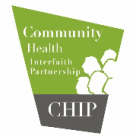Resources for Older Adults and Caregivers in Georgia
Georgia Crisis & Access Line (GCAL) 1-800-715-4225 (Toll-Free)Are you seeking help and information related to mental illnesses, drug/alcohol addiction, or developmental disabilities? Whether you need to get help in a crisis, access services, or find long-term support, GCAL is here for you, your family, friends, and clients. GCAL, a service of the Georgia Department of Behavioral Health and Developmental Disabilities (DBHDD), is staffed by counselors who can connect callers with outpatient services, mobile crisis help, detoxification services, stabilization, and more. GCAL is available to people of all ages 24/7, in all parts of Georgia. To learn more, visit Georgia Collaborative or call 1-800-715-4225. GCAL dispatches 24/7 Mobile Crisis Services to 159 counties in Georgia. This service sends a mental health professional to the home to assess people with urgent psychiatric needs. You may call on behalf of another person who needs help. It is ideal for you to be physically present with that person at the time. Some common reasons for calling Mobile Crisis include:
1-866-552-4464To speak to an information specialist about getting access to a variety of aging services, contact the Aging and Disability Resource Connection, a program of the Georgia DHS Division of Aging Services and Georgia’s 12 Area Agencies on Aging. Other Resources Mental Health AmericaTo learn about common types of mental health conditions, see the Mental Health America website. Alzheimer’s Association – Georgia Chapter 1-800-272-3900For information and help related to Alzheimer’s Disease and other forms of dementia, contact the Alzheimer’s Association’s 24/7 Helpline. National Suicide Prevention Lifeline 1-800-273-TALK (8255)If you or someone you know is in crisis and would like to talk to a crisis counselor, call the free and confidential National Suicide Prevention Lifeline. TTY users should call 1-800-799-4TTY (1-800-799-4889). You can talk to a counselor 24 hours a day, 7 days a week. Call the Lifeline:
Medicare and Your Mental Health BenefitsThis official government booklet has information about mental health benefits for people with Original Medicare, including:
Fuqua Center for Late-Life Depression 404-712-6941The Fuqua Center, an initiative of Emory University Department of Psychiatry and Behavioral Health Sciences, participates in a statewide network that offers outreach, resources, and treatment. Printable PDF |
|
|

